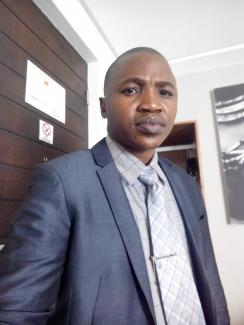
Countless Indigenous Peoples have been divided by imposed State borders, their communities and relatives separated by artificial lines, their migration patterns, sacred rituals, fishing and hunting ways altered. Innumerable Indigenous communities have suffered forced displacement due to conservation efforts, extractive industry operations, political strife, and the impacts of climate change. Every day we hear about Indigenous migrants who are forced to leave their home in search of work because it is no longer viable for them to make a living locally. They flee violence; they flee because they can no longer provide for their families, because their resources are depleted or polluted by large scale agribusiness. To tackle migration and immigration issues, we must reverse the impacts of colonization, decades of neoliberal policies, and the current operations of extractive industries, agro companies, and monocropping that have impoverished Indigenous communities. We must respect, protect, and fulfill Indigenous rights, encouraging the decolonization and support of home communities with sustainable economic opportunities so that people do not have to leave. The following are a few Indigenous voices on these issues. We invite you to listen. To hear the full interviews, visit: cs.org/rights.
Gakemotho Tikhwebe Satau (Buka Khwe from Botswana)
I’m a member of a San organization called ToCadi Trans Okavango Cultural Development Initiative, as well as the San council called Khwedam council. I’m also a member of the Indigenous Peoples of Africa Coordinating Committee; I am the regional chair as well as the deputy chair of the Southern African region. The Okavango in Botswana forms part of the broader landscape classified under Khazar, and the Okavango Delta is a traditional and historic home of the Khwe Basarwa Bushmen.
The recent talks about land claims are about the SainteMarie Midgame Reserve, which is at the heart of the Okavango Delta. Inside the reserve, there is an island known as Chief ’s Island. The Tawana local Tribal authorities applied three years ago to the Tawana land board, who are the local authorities of the land. Our argument is that the land in question traditionally belongs to the San. These are the Xani Khwe and BukaKhwe speakers, who were forcefully evicted to establish the game reserve and since have been denied access to the land. Buka Khwe linguistically belongs to central Khwe San languages in Botswana.
We have heard that the Tawana land board are expediting their process for possible allocation of the land in question to the chief. A few San organizations, including ToCadi, Khwedem Council, and others facilitated the submission of an objection to the Tawana land board; some of our members who put through the applications had them deferred or rejected, but the matter is still ongoing. The land in question has a history of my people and their interactions on it. The San, like many other Indigenous Peoples, have an oral, unwritten history. This is the land where the Tswana, or Bantu, ethnic groups came to find us. Our forefathers used to hunt big game on these lands. We are administered on the basis of that dominant Tswana group, which is completely alien to our ways of doing things, our ways of reasoning. This has for decades increased our marginalization.
There were talks on making a game reserve here in Botswana Okavango Delta, which later became the Moremi Game Reserve. Everyone sided with the influence of the dominant Tswana of the chiefs. The San were not part of that development. Decisions were made and we were evicted. Some got killed in the process.
The modern systems of government have forced us to assimilate to their ways and forego our own ways. They labeled our ways as not civilized and said that we live the life of Stone Age creatures and had to change while they took our land and our animals. Their ways of life were continually forced upon us, and we lost our land and our identity. Our prime land became protected areas, game reserves, national parks, forest reserves. Our land became the State land. We don’t own any form of land, we lost our economy, our cultures and ways of expression, and it has killed our hopes.
We are calling now for negotiations to correct this historic brutality. We need resources for support: money, legal volunteers for litigation on issues of identity, land rights, economic threats, and economic freedom. We want our governments, private organizations, the Southern African Development Community, and international organizations to help us make the State accountable for the negligence against the San. It is hypocritical for Botswana to be a member of the United Nations and be bound by human rights principles while on the ground they are guilty of depriving the San of their identity, their language, their lands, and their economy.
We are waiting for the land board to respond. If they do not respond favorably, we are going to take the matter to the land tribunal. If we are not satisfied, we are going to go to the high courts. We are going to go for the African Commission to engage further on this in order to make sure that the voices of the San are heard. The San should be looked at as shareholders in this process. We need support to help us achieve a meaningful dialogue in the issues of land, acquiring land rights, our identity, and representation in decision making bodies.
Photo by Gakemotho Tikhwebe Satau.
